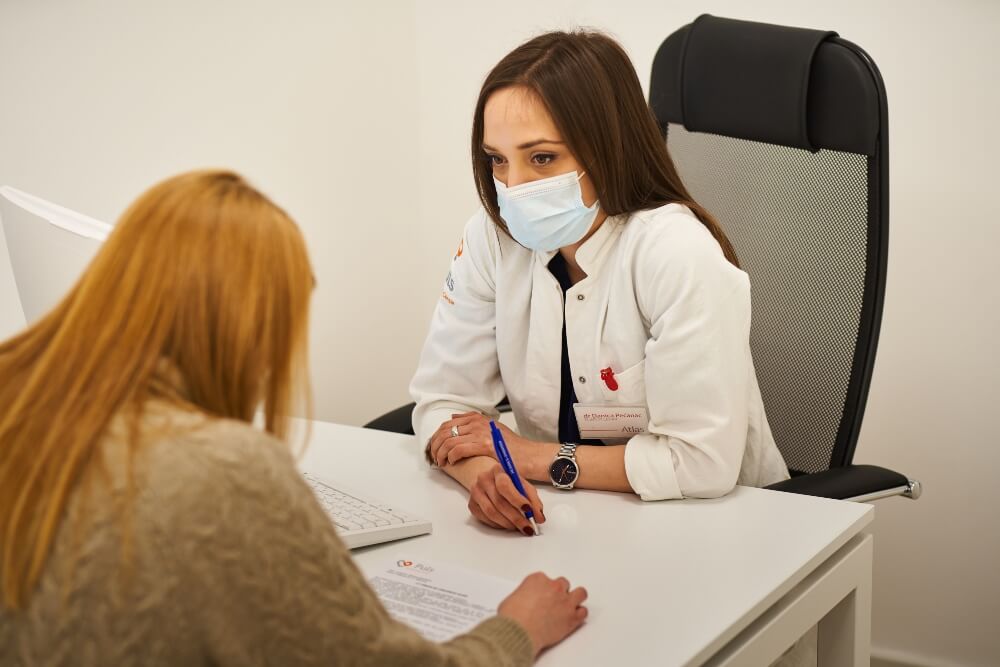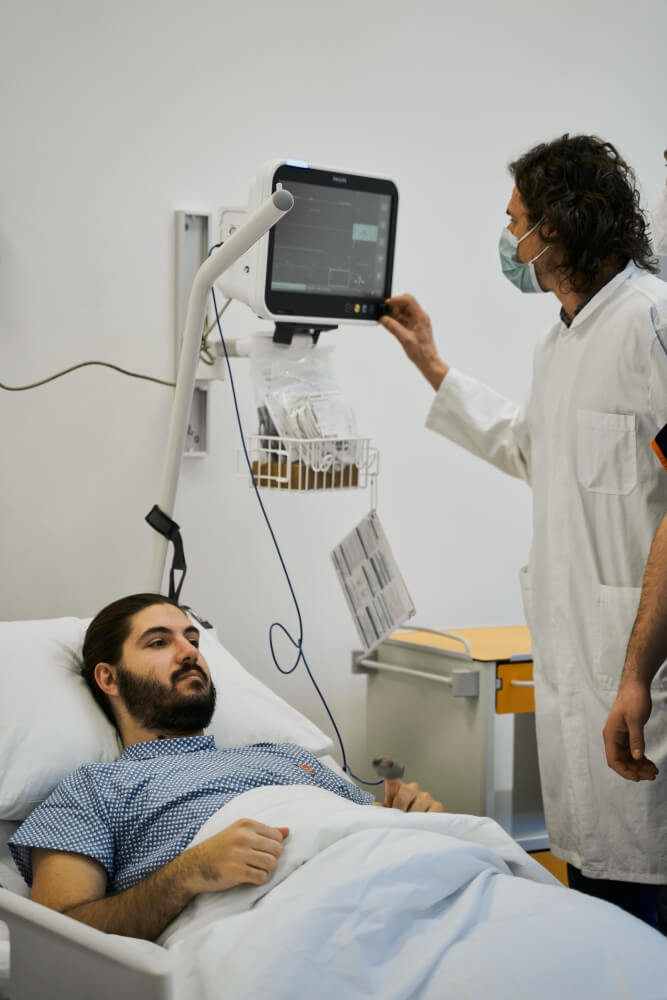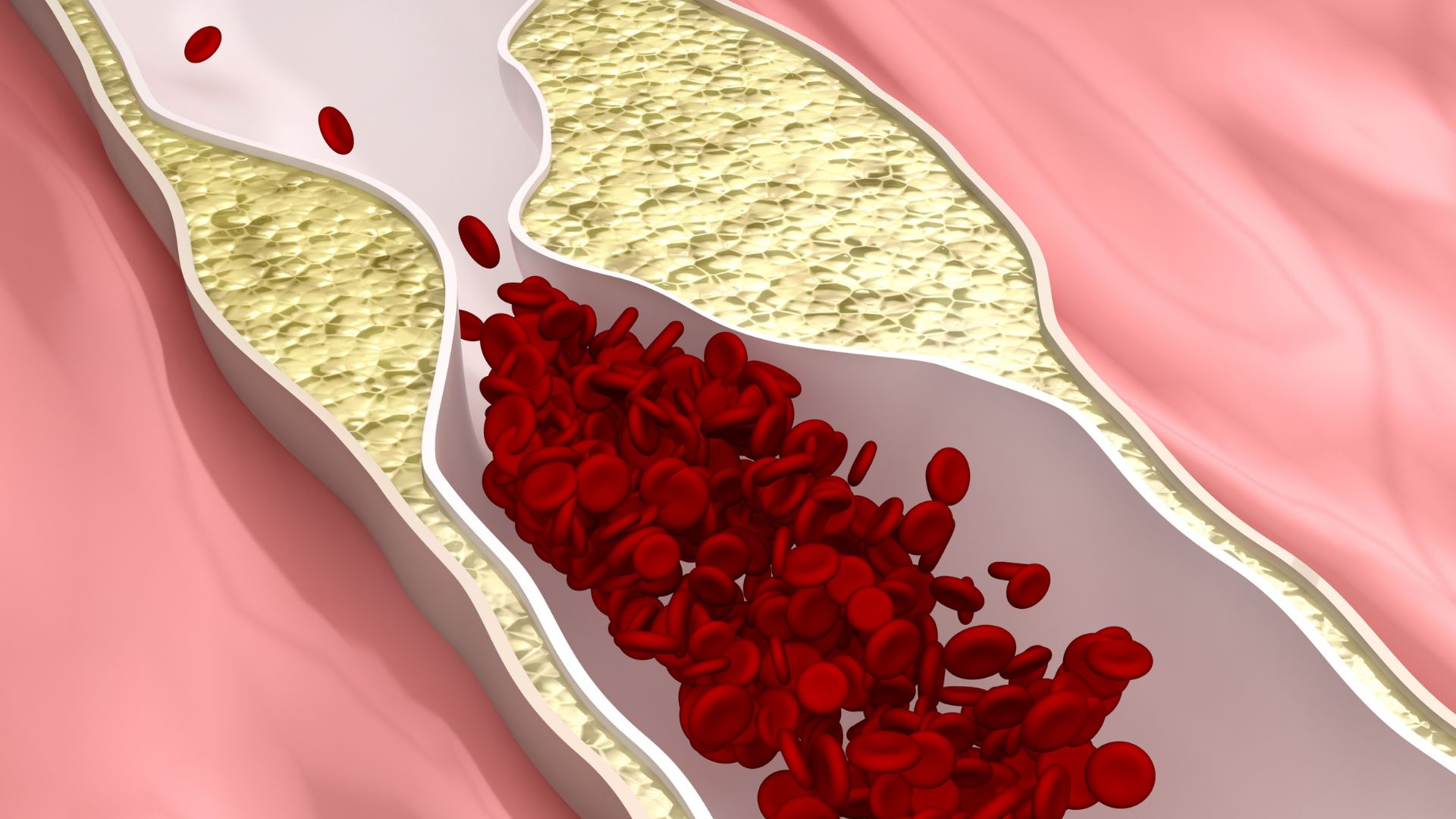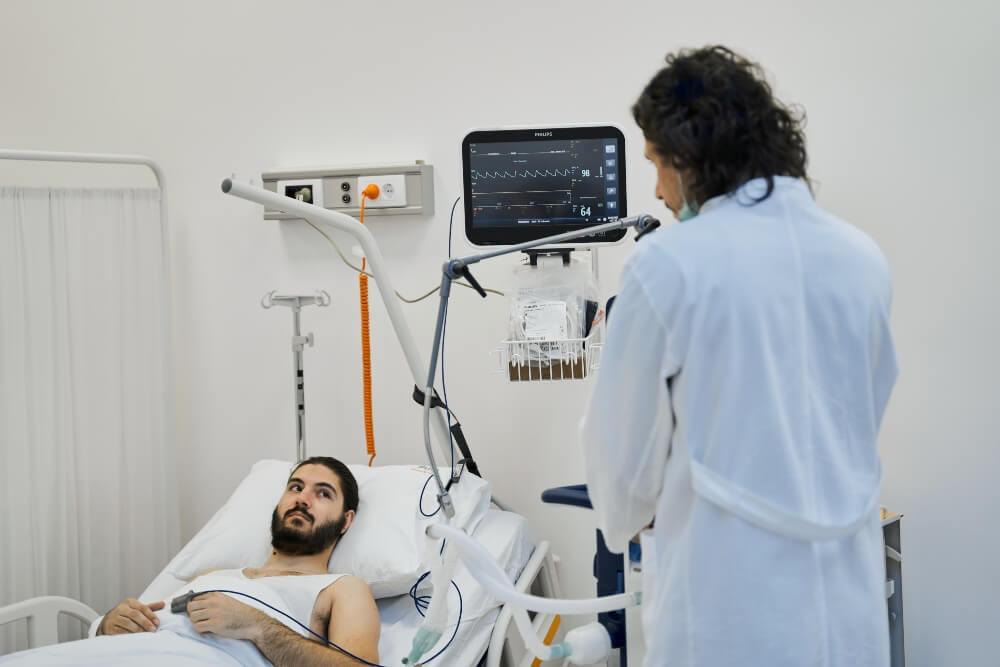On the other hand, it is possible for the intensity of the pain to deceive a person, causing them to wrongly assess the situation and not seek medical help in a timely manner. In any case, when you experience any type of chest pain, it is best not to draw conclusions on your own but rather to visit a doctor.
A heart attack is just one of the reasons why chest pain may occur. An electrocardiogram (ECG) and other laboratory tests can easily and quickly determine if this issue is involved.
What can chest pain signify?
Chest pain, stabbing pain in the chest, tightness, simultaneous pain in the back and chest – all of these are descriptions of discomfort that can occur in the chest area. These symptoms don’t always indicate dangerous and potentially life-threatening diseases, but it is necessary to conduct thorough diagnostics to exclude problems that could jeopardize the patient. A detailed examination is a priority if you want to preserve your life and health!
At the Pulse Cardiology Center, we have a specially organized Chest Pain Center that enables fast admission, diagnosis, and treatment of patients with this symptom. We will try to cover and list in one place what chest pain can potentially indicate:
Angina pectoris
Angina pectoris is a condition characterized by the narrowing of blood vessels and inadequate supply of oxygen-rich blood to the heart muscle.
Typical features of angina pectoris pain include:
- Most commonly felt in the middle of the chest
- May radiate beyond the chest to the neck, jaw, left arm, or shoulder
- Occurs during physical exertion and in stressful situations
- Described as tightness or pressure in the chest
- The intensity of the pain is severe
- Pain does not worsen with breathing or changing positions
- Other symptoms that may occur in this situation: difficulty breathing, nausea, dizziness, cold sweats
Classification of anginal pain:
- Class I – Pain is not present during routine activities.
- Class II – Physical activities such as walking and climbing stairs provoke pain.
- Class III – Daily activities (walking, exposure to cold, stress, etc.) lead to pain.
- Class IV – Pain is present even at rest
Myocardial infarction (heart attack):
A heart attack occurs when there is a complete blockage of the coronary arteries. When the coronary arteries are blocked, oxygen-rich blood cannot supply the heart muscle. Most commonly, a blood clot (thrombus) occludes the arteries by getting stuck in an already narrowed blood vessel.
Characteristics of pain in a heart attack:
- It is located in the middle of the chest behind the breastbone.
- It radiates towards the left arm, neck, jaw, and back.
- It is extremely severe.
- Other symptoms that may occur in this situation include nausea, vomiting, difficulty breathing, and sweating.
Pericarditis:
Pericarditis is inflammation of the pericardium, the protective membrane around the heart, and it often occurs after a viral or bacterial infection.
Characteristics of pain in pericarditis:
- Sharp, stabbing chest pain.
- Pain lasts for an extended period, typically several days.
- The intensity of pain increases with coughing, lying down, or deep breathing.
Pulmonary Embolism:
Pulmonary embolism is a highly dangerous condition that can rapidly threaten a patient’s life.
Severe chest pain and sudden difficulty breathing are the main symptoms, and in addition, patients may appear pale and experience choking or suffocation.
Inflammation of the Pleura:
This inflammation can occur as a result of tumors, pneumonia, or lung tissue diseases.
Characteristics of pleura inflammation pain:
- Located in the middle and lower chest
- Intense in nature and aggravated by coughing or breathing
- Often accompanied by a dry cough and fever
Disc Herniation
This is also a serious problem that occurs due to the degeneration of the discs located between the vertebrae.
Characteristics of disc herniation pain:
- Located along the intercostal nerve
- Radiates through the spine to the chest
- Simultaneous pain in the back and chest
- Lasts for a long time
- Intensity increases when the patient coughs or moves
Pain Between the Ribs
Discomfort can occur in the chest area when there are issues with the intercostal muscles, cartilage, ribs, and spine.
Characteristics of pain associated with these issues are specific:
- Stabbing pain between the ribs
- Very intense
- Lasts for a very short duration (a few seconds)
- Does not radiate to other parts of the body
Gastroesophageal Reflux
When acid flows back from the stomach, it is usually due to the weakening of the ring-like muscle between the stomach and esophagus. Acid reflux can cause inflammation of the esophagus, resulting in pain or a burning sensation behind the sternum. Very often, Helicobacter pylori bacteria can also cause symptoms and a painful burning sensation in the chest that spreads.
Stress and Fatigue
The way we live and eat can also contribute to the occurrence of pain in various parts of the body, including the chest. Poor stress management, irregular and unhealthy diet, the nature of our work, lack of physical activity—all these factors affect our body and its functioning.
When chest pain occurs, it is always necessary to undergo an examination and find the exact cause of its onset. If it is related to stress, there are effective ways to manage it, and your doctor will provide guidance on reducing the likelihood of experiencing pain.
Does the severity of the condition determine the intensity of the pain?
It is not always the case that severe pain indicates a life-threatening situation, nor does milder pain always mean you are in a harmless situation.
Only a medical professional can determine the cause of chest pain and its significance.

What should we do if we experience chest pain?
When you experience stabbing chest pain, chest pain, and difficulty breathing, it is safest to seek medical attention, especially if you suspect a heart attack. It is better to call emergency services and find out that it is not a heart attack than to not seek help in time. The moment a person receives assistance after a heart attack is crucial for survival. If the pain you feel is similar to a knife stabbing and worsens when you move or cough, if it lasts for a very short time and stops, or if it lasts for several days, there is a lower likelihood that you have had a heart attack. There is a higher chance of it being a heart attack if you have chest pain and difficulty breathing, if the pain radiates to the left side of the body, if it intensifies in the first few minutes, and if it feels like pressure, tightness, or burning.
To patients who are scared and anxious due to the appearance of these symptoms, a timely reaction from the doctor means a lot. Even when it’s not a heart attack, it’s normal to want to know why you felt that way and whether it will happen again, as well as what you can do to prevent it from recurring. We can provide you with answers regarding the origin of the pain very quickly.
Our Chest Pain Center is organized in a way that ensures all the necessary diagnostics are available to you in the shortest possible time. The experts in our team are experienced in applying various diagnostic and interventional methods. The equipment we possess is among the most modern in our country. The gold standard in chest pain diagnostics is CT scanning, especially the TRO (Triple Rule Out) test.
Upon admission to our Day Hospital, you can quickly undergo tests that in many other institutions would require a long wait. You don’t have to visit multiple institutions or laboratories. Under the roof of the Cardiology Center Pulse, you have everything necessary for the diagnosis and treatment of various diseases, particularly heart diseases. Contact us and schedule an appointment.






